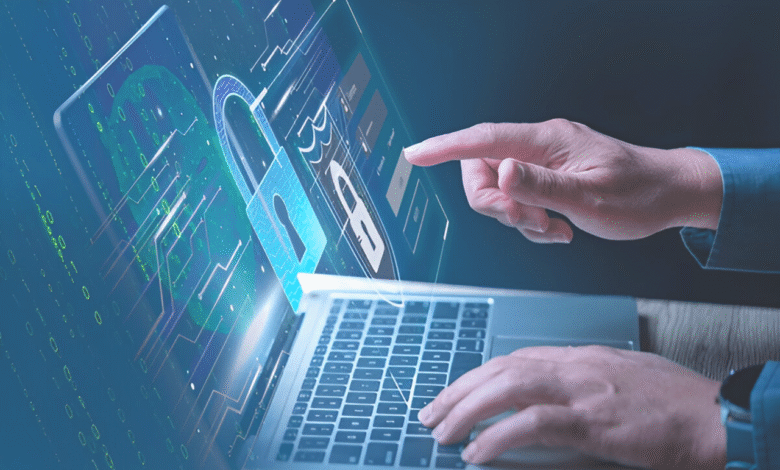Cybersecurity Threats Facing Pakistani Businesses in 2025
Cybersecurity threats Pakistan 2025 Learn about emerging cyber risks for Pakistani businesses and protection strategies against AI attacks.

Cybersecurity threats are becoming increasingly sophisticated, posing significant risks to Pakistani businesses as we move into 2025. With rapid digital transformation, expanding e-commerce, and greater reliance on cloud-based solutions, organizations across Pakistan are more vulnerable than ever to Cybersecurity Threats. Hackers are leveraging advanced technologies like artificial intelligence (AI) and machine learning to bypass traditional security measures, targeting everything from financial institutions to small and medium-sized enterprises (SMEs). Many Pakistani companies, particularly those with limited cybersecurity awareness, remain ill-prepared to defend against these evolving dangers. This examines the most pressing cybersecurity threats expected in 2025 and outlines strategies to mitigate them.
The consequences of cyberattacks extend far beyond financial losses businesses face reputational damage, legal penalties, and operational disruptions that can take years to recover from. In Pakistan, where cybersecurity infrastructure is still developing, threats such as ransomware, phishing scams, and insider breaches are growing at an alarming rate. Government initiatives and corporate policies must align to strengthen defenses, but individual businesses must also take proactive steps to safeguard their digital assets. As cybercriminals refine their tactics, staying informed and implementing robust security measures will be critical for survival in an increasingly hostile digital landscape.
Cybersecurity Threats Facing Pakistani Businesses in 2025
The Evolving Cybersecurity Landscape in Pakistan
As Pakistan continues to embrace digitalization, Cybersecurity Threats have grown in both scale and sophistication. The country’s expanding internet penetration, coupled with a surge in e-commerce and online banking, has made businesses vulnerable to cyberattacks. Many organizations still rely on outdated security measures, making them easy prey for hackers. Additionally, the lack of stringent cybersecurity regulations and a shortage of skilled professionals further exacerbate the risks. In 2025, businesses must contend with a mix of traditional and emerging threats, including AI-driven attacks, deepfake scams, and state-sponsored cyber espionage.
Major Cybersecurity Threats in 2025
Ransomware Attacks on the Rise
Ransomware remains one of the most devastating cybersecurity threats for Pakistani businesses. Attackers deploy malicious software to encrypt critical data, demanding hefty ransoms for decryption keys. In 2025, ransomware gangs are expected to adopt more aggressive tactics, targeting not only large corporations but also SMEs with weaker defenses. Hospitals, financial institutions, and government-linked enterprises are particularly at risk. The consequences extend beyond financial losses, as prolonged downtime and reputational damage can cripple businesses permanently.
Phishing and Social Engineering Scams
Phishing attacks continue to evolve, leveraging AI to craft highly personalized scams. Cybercriminals impersonate trusted entities, such as banks or government agencies, to trick employees into revealing sensitive information. In 2025, deepfake technology may enable voice and video phishing, making scams even harder to detect. Pakistani businesses must invest in employee training and advanced email filtering systems to combat these deceptive tactics.
Cloud Security Vulnerabilities
With more businesses migrating to cloud platforms, misconfigurations and weak access controls pose significant risks. Hackers exploit these vulnerabilities to steal data or disrupt services. Many Pakistani companies lack cloud security expertise, leaving sensitive customer and corporate data exposed. Implementing multi-factor authentication (MFA), encryption, and regular security audits can help mitigate these risks.
Insider Threats and Employee Negligence
Not all Cybersecurity Threats come from external actors; insider threats whether malicious or accidental are equally dangerous. Disgruntled employees or careless staff can leak confidential data or fall victim to social engineering. Pakistani businesses must enforce strict access controls, monitor user activity, and foster a culture of cybersecurity awareness to minimize insider risks.
IoT and Supply Chain Attacks
The proliferation of Internet of Things (IoT) devices in business operations introduces new attack vectors. Hackers can exploit weak IoT security to infiltrate networks or launch large-scale attacks. Additionally, supply chain attacksnwhere cybercriminals target third-party vendors to breach larger organizations are becoming more common. Pakistani firms must vet their suppliers’ security practices and implement robust endpoint protection.
AI-Powered Cyberattacks
Artificial intelligence is a double-edged sword in Cybersecurity Threats. While it enhances Cybersecurity Threats detection, hackers also use AI to automate attacks, bypass traditional defenses, and identify system weaknesses. Pakistani businesses must adopt AI-driven security solutions to stay ahead of these evolving threats.
Regulatory and Compliance Risks
Pakistan’s cybersecurity laws are still in development, leaving businesses in a gray area regarding compliance. Failure to adhere to international data protection standards (such as GDPR) can result in legal penalties and loss of customer trust. Companies must proactively adopt best practices and stay updated on regulatory changes.
Strategies to Strengthen Cybersecurity in 2025
Implementing Multi-Layered Defense Systems
Businesses must adopt a zero-trust security model that verifies every user and device attempting to access the network. This includes deploying next-generation firewalls, intrusion detection systems (IDS), and endpoint protection platforms (EPP). Artificial intelligence (AI) and machine learning (ML) should be integrated to detect and respond to anomalies in real time.
Enhancing Employee Cybersecurity Awareness
Since human error remains a leading cause of breaches, organizations should conduct regular cybersecurity training to educate employees on phishing scams, social engineering, and safe browsing practices. Simulated attack drills and security awareness certifications can reinforce best practices.
Strengthening Cloud and Data Security
With businesses increasingly relying on cloud services, implementing strong encryption, multi-factor authentication (MFA), and access control policies is essential. Regular vulnerability assessments and penetration testing should be performed to identify weaknesses in cloud infrastructure.
Adopting AI-Driven Threat Detection
Cybercriminals are using AI to launch sophisticated attacks, so businesses must leverage AI-powered security tools for behavioral analysis, automated threat hunting, and predictive cybersecurity. These systems can detect unusual patterns and block threats before they cause damage.
Establishing Incident Response and Recovery Plans
A well-defined incident response plan (IRP) ensures quick action during a cyberattack. Businesses should conduct regular cyber drills, maintain offline backups, and establish a disaster recovery strategy to minimize downtime and data loss.
Ensuring Compliance with Cybersecurity Regulations
Adhering to local and international cybersecurity standards (such as GDPR, PECA, and ISO 27001) helps businesses avoid legal penalties. Regular security audits and compliance checks should be conducted to ensure alignment with regulatory requirements.
Securing IoT and Supply Chain Networks
As Internet of Things (IoT) devices and third-party vendors become common attack vectors, businesses must enforce strict vendor risk assessments and IoT security protocols. Network segmentation and continuous monitoring can prevent unauthorized access.
Collaborating with Cybersecurity Experts
Partnering with cybersecurity firms, government cyber cells, and information-sharing platforms can provide businesses with threat intelligence and emerging attack trends. Public-private partnerships can strengthen national cybersecurity resilience.
Read More: AI in Pakistani Healthcare: Current Applications and Future Potential
Conclusion
Cybersecurity threats in 2025 present an unprecedented challenge for Pakistani businesses, demanding immediate and strategic action. As cybercriminals employ more sophisticated techniques like AI-powered attacks and deepfake scams, organizations must prioritize robust security frameworks, employee training, and advanced threat detection systems. The risks of inaction are severe—financial losses, reputational damage, and regulatory penalties could cripple even the most established enterprises. For Pakistan’s growing digital economy to thrive, cybersecurity must become a core business priority rather than an afterthought.
The path forward requires collaboration between private businesses, government agencies, and cybersecurity experts to build a resilient defense ecosystem. By adopting proactive measures such as regular security audits, data encryption, and incident response plans, Pakistani businesses can significantly reduce their vulnerability to cybersecurity threats. The time to act is now—companies that invest in comprehensive protection today will be better positioned to withstand the evolving threat landscape of tomorrow. In an increasingly interconnected world, cybersecurity isn’t just about technology; it’s about ensuring business continuity and maintaining trust in Pakistan’s digital future.
FAQs
What are the biggest cybersecurity threats for Pakistani businesses in 2025?
Ransomware, phishing, cloud vulnerabilities, insider threats, and AI-powered attacks are among the top risks.
How can SMEs improve their cybersecurity defenses?
SMEs should invest in employee training, multi-factor authentication, regular backups, and affordable security solutions.
Why are phishing attacks becoming harder to detect?
Cybercriminals now use AI and deepfake technology to create highly convincing scams.
What role does government regulation play in cybersecurity?
Stronger regulations can enforce better security practices, but businesses must also take independent action.
How can businesses recover from a Cybersecurity Threats?
Having incident response plans, data backups, and cyber insurance can help minimize damage and ensure quick recovery.












4 Comments